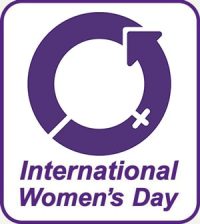International Women's Day

International Women’s Day (IWD) is an annual celebration of the achievements of women all around the world. Since the first International Women’s Day in 1909, we’ve come a long way. However, there is still a long way to go. This year, the theme for IWD, #BalanceforBetter, focuses on how we can achieve equality and balance in all aspects of life for women and men.
In respect to this, the UN Sustainable Development Goal 5 outlines key targets for gender equality. Among these goals are ending all forms of discrimination against women and girls, eliminating harmful practices (such as early and forced marriage), ensuring access to sexual and reproductive health, and undertaking reforms to give women equal rights to economic resources.
So, what does this have to do with water, sanitation, and hygiene? Well, everything!
Did you know?
- Women and girls in developing countries spend up to five hours a day, three-and-a-half miles on average, collecting water.
- Among many cultures, periods are seen as dirty and shameful. Young girls are often ridiculed or forced outside of the community during their periods.
- Schools and workplaces lacking basic sanitation force women and girls to avoid defecation until nightfall, causing health complications and exposing them to risk of assault.
- Hygiene services are inadequate in 47% of schools globally. Without access to products or facilities, more than 1 in 5 girls in India drop out of school. Once they start menstruation and 1 in 10 girls in Africa miss school because of their periods.
WASH Education
Our WASH Education programs focus on long-term behavior change for healthier communities around the world.
These programs provide supplies and training to schools and community healthcare facilities in a ‘train the trainer’ approach.
Microenterprise
By choosing women in a community where we also have a WASH Education program in, we can close the circle on sustainability in that community.
Not only will the community have long-term access to hygiene amenities, but the women will be operating their own business, receiving revenue and giving them the economic opportunity to make her own life choices as well as lifting her up as a pillar in her community.
Feminine Hygiene
As part of the Sustainable Development Goals (SDGs), we focus on the inclusion of women in our programs and their health in our WASH Education programs.
To keep young girls in school, this part of our programming provides girls with access to hygiene supplies and works towards ending the stigma surrounding the period.
With access to clean water, proper sanitation, and hygiene products, we can keep girls in schools.
This is equally as important for the girl as it is for her community. Individually, girls who finish secondary education are less likely to experience child marriage, domestic abuse, and suffer from long-term health conditions.
On a larger scale, these same girls have fewer, healthier children who are more likely to receive education and help end the cycle of poverty. The end of this cycle begins with you.